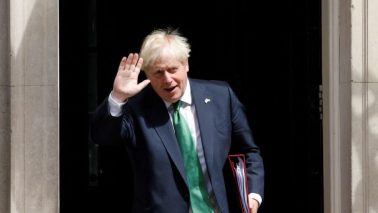After last week’s mishap, Peter Oborne returns to form with a column best considered as a mash-note to the Radio Four theme. Because Peter is, essentially, a romantic he allows himself to be carried away by the fond vigour of his desire to see Great Britain preserved for future generations to enjoy. That should not detract from the central thrust of his column:
Alex Salmond, that most brilliant and attractive of modern British politicians, is capable of superbly articulating the sense of nobility, romance, mission and fierce patriotism felt by many SNP supporters. Nationalism and the cry for liberty can be an intoxicating cocktail, even at the start of the 21st century. So far his opponents have produced nothing to rival it.
They have played the politics of fear, warning Scots of the economic uncertainties that lurk outside the Union. It is not a very convincing message, and it is also an unworthy one. The United Kingdom richly deserves to survive – but only if it can conjure up its own poetry and romance, and embrace the English, Scots, Welsh and Irish on equal terms.
This should be attainable. On their own, our composite parts have always been rather unimpressive and unattractive. Together, we have been amazing. Four hundred years ago, before the Act of Union, the nations that today make up Britain were piffling little places on the edge of the world, prone to regicides, civil disturbance, internecine strife and murder.
Actually, Salmond has generally, though certainly not always, been happy to distance himself from the romantic vision of a liberated Scotland. You won’t, for instance, see the First Minister in a kilt and not just because he’d look ridiculous (cf Michael Forsyth at the dreadful Braveheart premiere). Salmond doesn’t often talk in those terms these days, partly because I think he thinks doing so risks alienating the SNP from “mainstream” Scotland which, while patriotic, is not likely to be persuaded simply by more vigorous flag waving.The fusion of those nations created something quite extraordinary.
Nevertheless, Peter is on to something: there is a romantic side to Unionism too. Whatever might be gained by independence, something would be lost too (even if Salmond’s “social union” could compensate for this to at least some degree). Similarly, of course, much was gained in 1707 but something vital was lost then as well. Such are the compromises and paradoxes of history.
Peter’s argument won’t persuade the True Believers in the SNP camp and some of those who might be prepared to acknowledge it will feel the benefits of independence outweigh any tinge of regret experienced as the great HMS Britannia is broken up. But there are plenty of Scots, many of them middle-aged or older but not all of them middle-class, for whom custom and tradition and the accumulated weight of a shared history still means something. Some of these Scots, containing as many multitudes as their compatriots, can appreciate the appeal of, and be tempted by, independence while regretting that the matter has come to a boil at all.
Sentiment is not invariably a terrible thing. Part of the Unionist appeal is its inclusiveness. Jock Tamson’s bairns can be found in Thurso and Falmouth and all parts inbetween. This is, necessarily, an idealised branch of Unionism that cares little for the nuts and bolts of Treasury forecasts or the division of oil revenues and it is, to a great degree, the better for it.
It is the kind of sensitive Unionism that speaks of a grander Scotland within Great Britain and a gravely lesser England without Scotland. (It’s not a surprise that Oborne cites Scott in his piece.) As Peter concludes:
Perhaps it’s easy to scoff at this. The latterday John Wilkes movement certainly will; so too will the most insistent partisans on the northern side of the Tweed. But, nevertheless, Oborne’s column is a reminder that many of the arguments made in favour of independence are mirrorred by arguments for the Union (and, of course, vice versa). They are, alternatively, as inextricably linked as the two sides of a coin and it is a matter of sensibility whether you prefer heads or tails.This is not, at root, an argument about economics. It is about identity. All of us – English, Scots, Welsh and Irish – will surrender the largest, most generous and most consequential part of our identity if the worst happens and Britain is lost.






Comments